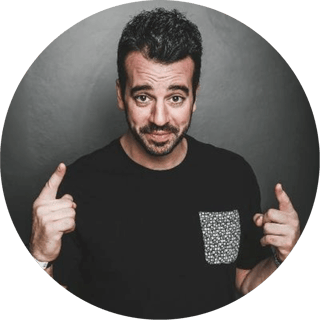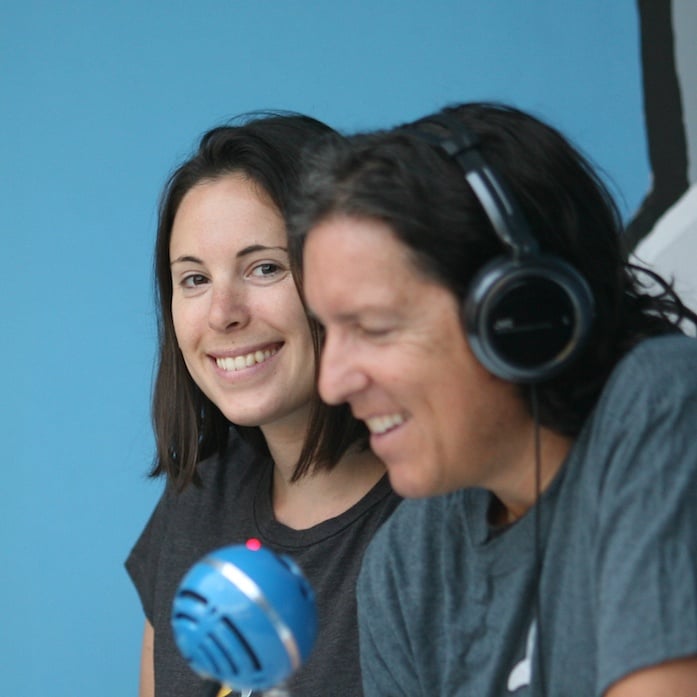
"If we don't focus on the end user,
we don't have a reason to exist anymore."
Steli Efti is a serial entrepreneur who has built one of the more unique sales CRM software solutions on the market by being different. The Close CRM was initially built for their internal sales teams, since Close actually only offered sales help to their customers. "Our clients outsourced their sales to us," Steli explained. But once the sales team started bragging to their sales friends about how amazing their CRM was, the friends started calling in asking to buy it. That's when Steli and his founding team realized they needed to shift from being services to software, and they haven't looked back.
Steli joined Helping Sells Radio to talk about how Close's unique genesis showed them the way to a more unique product and raving fans.

It all started with a simple question
"Can we just do something that is just awesome and helps sales people do their jobs better?"
That was the question running through Steli's mind as he worked at Close as one of the first salespeople "rented" out to their customers. When Close first started, they were simply a sales outsourcing company and Steli was the first salesperson to be "rented" out.
The CRM development team at Close used to sit right next to the sales people and everyone could see exactly what the other was doing. Sales people would turn to the developers and ask them to change a feature to be easier to use on Monday. On Thursday, the developers would see the sales people struggling to complete another task that could only be done with 17 clicks and would wonder how they could make it easier for the sales people.
And that's what Steli was thinking about too. How could their internal software be easier to use by Close employees, that's it. He wanted to remove all the friction for his own sales staff that were "rented" out to their clients, so they could do their jobs more easily and provide stellar service to their clients.
But sales people being the chatty and outgoing types they are, they started raving to their sales friends about the "awesome" software they got to use at work to do their jobs. They raved so much about it that the friends started calling in asking if their company could buy Close's CRM!
Not only that, Close's clients were starting to ask about the software for their internal sales teams too. They saw how well it was working for the portion of the work Close was doing for them and they wanted their own teams to benefit from it too.
All because Steli and his team tried to build a piece of software that helped the end users do their jobs better.
Sell to the stakeholders, but build for the end users
That's Steli's piece of advice to anyone selling software, especially in the B2B software market. By its very nature, B2B and enterprise software sales are complex and involve many different stakeholders, but at the end of the day, the software is built to be used by end users. Chances are it's not the stakeholders or the sales contract signers who are going to use the software. It's the employees on the ground that are. They're the ones that must benefit from the software, otherwise you're not doing your job as a software company, according to Steli.
In order to help companies do that, Steli advises to map out the entire buying journey, all the way to product adoption, usage, and expansion. That way your entire organization will have a better perspective on how they can impact the journey in their own way. It will also help you relate to each type of need your prospect has for wanting to buy your software: the end user needs, the department needs, and the overall organizational needs.
B2B sales often focuses on the organizational and/or departmental needs and tends to ignore the individual end user needs. This is how companies end up spending millions of dollars on software licenses that only a fraction of the employees end up using.
This focus on the end user isn't just for the sales team either, Steli says. "All stakeholders are important, but for Close, if we don't focus on the end user, we don't have a reason to exist anymore." In the early days of Close, Steli and his team came across this philosophy by "proximity", since the sales and development teams literally sat next to each other. There was simply no way for the teams to not discover ways to improve the software. Whether it was the sales team making a suggestion or the development team noticing an obstacle they could help the sales team overcome, the CRM product improved.
When it came time to switch from being services-based to product-based, it made the transition much easier. Steli knew that the CRM software was going to help all of their prospects because it helped their own sales team.
If you liked this episode, you may like these episodes too:




